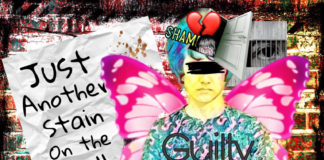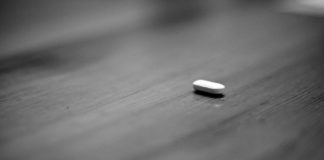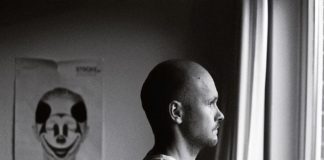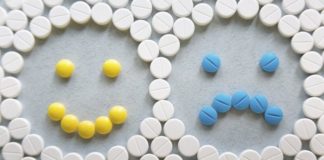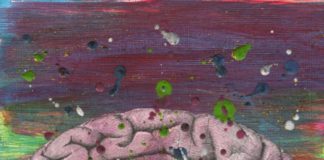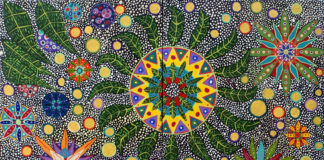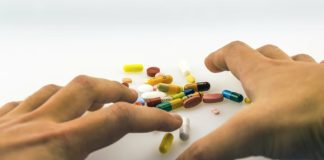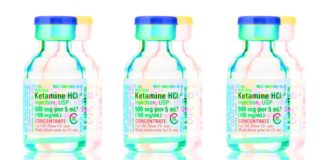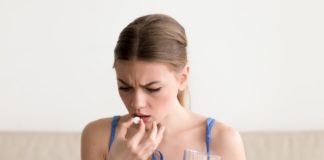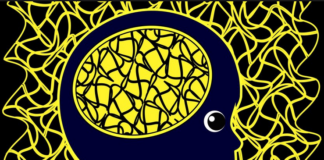Tag: Depression
Not Just Another Stain on the Wall
During my 96-hour hold in the psych unit—despite that I was rational and a danger to no one—I was made to feel ashamed and somehow unclean. I went home feeling more depressed than ever.
Researchers: It’s Time to Stop Recommending Antidepressants for Depression
Researchers review a new synthesis of the existing evidence and conclude that the harms of antidepressants outweigh any benefits.
Suicidal Thoughts, Psychiatric Diagnosis, and What Really Helps: Part Two
This piece is the second of a two-part essay about suicide, diagnosis, what doesn't help, and what does help. This part is about barriers to seeking help and about the ways we actually can be of help to people who are considering suicide.
Suicidal Thoughts, Psychiatric Diagnosis, and What Really Helps: Part One
This piece is the first of a two-part essay about suicide, diagnosis, what doesn't help, and what does help. This part is about suicide, diagnosis, and some of what fails to help.
Strategies for Tapering and Discontinuing Antidepressants
A new review of strategies to support both patients and practitioners through the process of discontinuing antidepressants.
JAMA Psychiatry Retracts Antidepressant Study
Once an appropriate statistical method was used, the study findings were “no longer valid,” according to the editors of JAMA and JAMA Psychiatry.
No Good Evidence That Antidepressants Prevent Relapse
Trials of antidepressants for relapse prevention are confounded by withdrawal effects caused by the drugs.
Psychiatry and the Stupidification of America
There are three steps to modern psychiatry’s successful business formula: 1. Get people to think that they’re stupid even though they’re smart. 2. Train them to actually think stupidly. 3. Directly stupidify them with chemicals.
Please Stop Saying Depression Is Like Diabetes
It seems more and more common for people who consider themselves mental health advocates to make the argument that “mental illness is like physical illness.” Have you heard this “depression is like diabetes” tactic? I have a hard time seeing how this is advocating for those in emotional distress.
Peer Behind the Mask of My Smile
Inside the hospital, I was a social butterfly and knew practically everyone on my wing, but at home, I was a nobody and a loner. If only I had the energy to fake it one hundred percent of the time, then nobody would suspect a thing.
The Chemical Imbalance Theory of Depression: Where Is It Going?
The spurious chemical imbalance theory of depression is arguably the most destructive thing that psychiatry has ever done. Worldwide, millions of individuals are taking antidepressants, often with a cocktail of other drugs, because they have been told the blatant falsehood that they need the pills to combat a brain illness.
Researchers: Antidepressant Withdrawal, Not “Discontinuation Syndrome”
Researchers suggest that the pharmaceutical industry had a vested interest in using the term “discontinuation” in order to hide the severity of physical dependence and withdrawal reactions many people experience from antidepressants.
Is There a Small Group for Whom Antidepressants Are Effective?
In a new study, researchers found no evidence of antidepressant group variance, which means that there's no particular group of patients who improve more than others on the drug.
Higher Drop-Out Rates for Those Taking Antidepressants
A review of 73 antidepressant studies finds that 12% more people drop out of clinical trials when taking antidepressants than when taking placebo, evidence that many find the adverse effects of antidepressants difficult to tolerate.
Researchers Fail to Predict Antidepressant Treatment Success
In a new study published in JAMA Psychiatry, researchers investigated whether they could use EEG (electroencephalograph) technology to predict whether people would feel better...
Experiences of Depression Connected to Declining Sense of Purpose
In-depth interviews find that those who screened positive for depression did not explain their experience in terms of diagnostic symptoms.
Does Facebook Use Improve Social Connections or Weaken Attention?
A network analysis of participants’ social media use and well-being reveals complex links with social capital but a minimal association with attentional control.
Initial Trial of Ayahuasca for Depression Shows Promising Results
Ayahuasca found to be effective in treating moderate to severe depression in low-income population.
Researchers Set the Record Straight on Controversial Zoloft Study
An issue of Lancet Psychiatry is devoted to clarifying the lack of efficacy for Zoloft (sertraline).
Ketamine for Harmful Drinking: A Look at the Data
New research contends that ketamine can reduce problematic alcohol use but does the data support the claims?
How Antidepressants Shape Young Women’s Sense of Self
Young women’s narratives indicate ways antidepressants have shaped their sense of self.
No Matter Which Measure You Use, Antidepressants Aren’t That Effective
Researchers compared the efficacy of antidepressants using different rating scales and found them to be no different—just slightly better than placebo, and not meeting the criteria for clinical significance.
Psychotherapy Less Effective for People in Poverty and Those on Antidepressants
A new study finds poorer depression and anxiety outcomes in psychotherapy for people in economically deprived neighborhoods and those on antidepressants.
Increased Antidepressant Use Does Not Decrease Depression Prevalence in Older Adults
The use of antidepressants has risen quickly among older adults but the rate of depressive symptoms in this population has not declined as a result.
Training Health Workers in Therapy Leads to Improvements and Less Medication...
A Nigerian study finds that more than three-quarters of patients improved, even when only 13% were prescribed medication.

